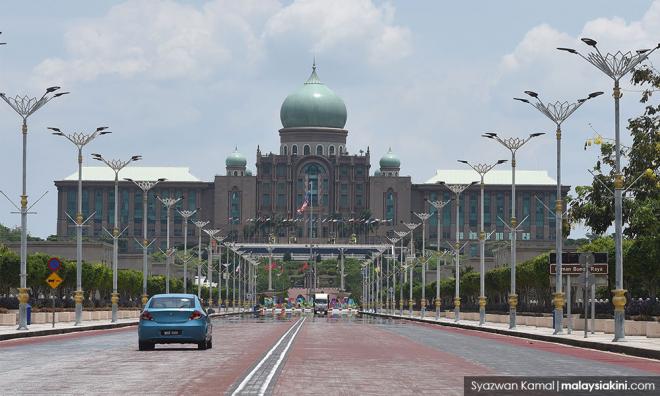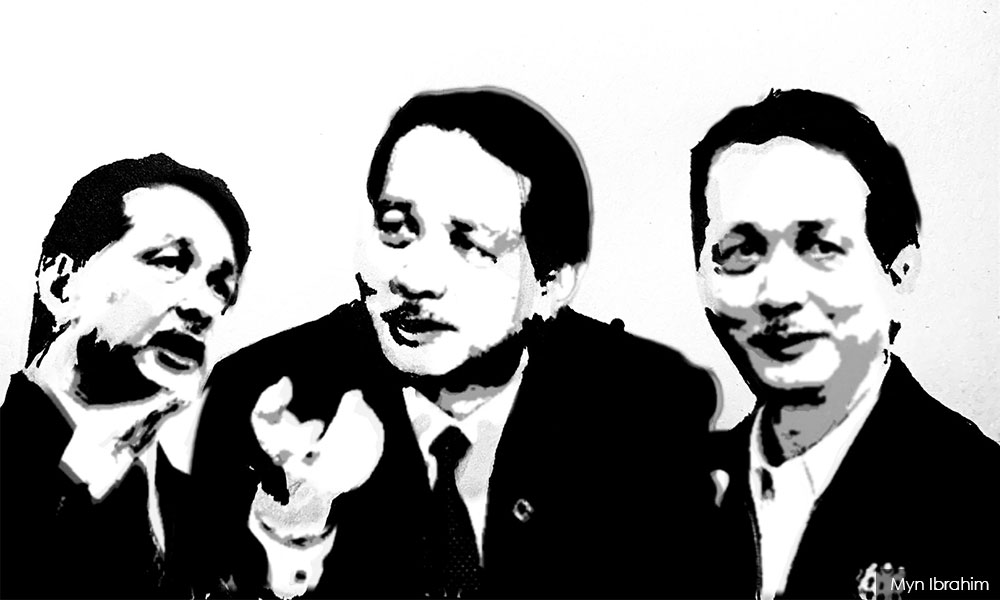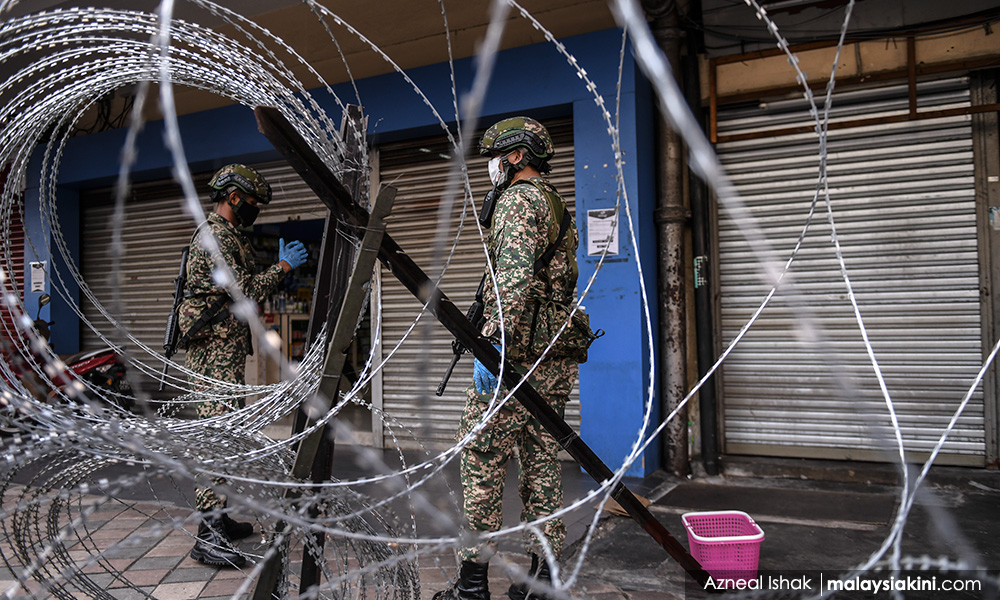
"Well, the basic principle is openness, transparency and fully keeping the public informed."
- South Korean foreign minister Kang, Kyung-wha on the strategy towards Covid-19 pandemic
With the extension of the movement control order, the big question is does Perikatan Nasional (PN) have an exit strategy? The South Korean foreign minister - whose quote from a BBC interview opens this piece – accurately describes the dilemma some Malaysians find themselves in when it comes to the government’s response to this pandemic.
The reality is that a government created out of deceit and treachery and held together by personal cooperation - as articulated by Sabah Umno chairperson Bung Moktar Radin - is unable to articulate a cohesive vision of tackling this pandemic and more importantly, a post-pandemic phase.
As the Singaporean foreign minister rightly pointed out, this pandemic “… is an acid test of every single country's quality of healthcare, standard of governance and social capital. If any one of this tripod is weak, it will be exposed and exposed quite unmercifully by this epidemic”, and what we have had are small feel-good moments of personality politics, malfeasance in terms of food aid, unequal application of the MCO (movement control order) laws but very little substantive policy on how to handle this pandemic.
As someone who is firmly in the “more testing camp”, in the words of the South Korean foreign minister, ”… testing is central because that leads to early detection, it minimises further spread and it quickly treats those found with the virus…", I am sceptical of the targeted testing of this regime. With asymptomatic carriers, this makes even so-called “green zones” suspect.
Furthermore, what we have been witness to is a slavish devotion to Health director-general Noor Hisham Abdullah (below) and an almost uncritical press more interested in burnishing the credentials of the DG than in reporting about the situations in the frontlines. After a period of docility and puppy love towards the Health DG, voices are already beginning to question the accuracy of the data coming out of the daily pressers and wondering if the government’s testing regimes accurately reflect the reality of what is happening on the ground.

The state security apparatus, meanwhile, is mired in politics which is slowly eroding the goodwill, not to mention the professional manner in which they started this MCO. It is as if the longer the MCO carries on, the facade is slowly being lifted, exposing the incompetence of this "kakistocracy".
While the pro-PN blogosphere is attempting to spin the narrative of a government coming together and being tested in a time of crisis, the anti-PN narrative is pointing to the continuing dysfunction of this Malay uber alles government.
PN repeatedly claims that it has a plan in place but the strategy seems to be waiting for a couple of weeks before pulling the trigger on extending the MCO. Meanwhile, absurd strategies of loosening the MCO involve all manner of personalities raising questions as to which groups, individuals and industries are exempt from the MCO.
Frontliners that comprise of a wide range of essential service personnel and workers who should be considered frontliners – cleaners, sanitation workers, foreign workers hired on an ad hoc basis – are telling me that they are being made use of but are not being told how long this situation will last.
A political operative in a supposed green zone is conflicted on how to handle this situation. On the one hand, she believes that green zones should have relaxed regulations but she wants more testing done, to ensure her zone does not become a hot zone. “What are the benchmarks we need to reach that balances the economic realities and health concerns for getting to this new normal,” she texted me.
A good example of how this PN is getting it wrong when it comes to exemptions and industries reliant on foreign labour is when Bukit Tengah elected representative Gooi Hsiao Leung stated that the government must explain the announcement it made about workers having to undergo testing for Covid-19 before being allowed to work.
"Although it is clearly stated in Miti’s standard operating procedures and guidelines for companies wishing to operate in the third phase of the MCO that any foreign worker not allowed to work but seeking an exemption to do so must undergo testing for Covid-19, how many companies have so far complied with this requirement to test their workers?”

All I get from this government are admonishments that we should obey the MCO but not on the exit strategy that will slowly put people back to work and business.
The prime minister said that the government is working on reviving the economy. He said, “[...] that even if the MCO is extended further, companies in approved sectors will be allowed to operate if they follow terms regarding workers' safety, social distancing and having a clean workspace.”
This sounds good but how exactly is this going to help people who are daily- wage earners or operating small businesses which rely on crowds to break even? While this may help big companies – for which we know that enforcement and regulations do not seem to apply – how does this help small companies and businesses which bear the brunt of enforcement?
Read R Nadeswaran’s piece about the corruption involving Ramadan bazaars and you will understand how some people are being exploited over in this pandemic and it has very little to do with the virus but with human greed.
“No one should take advantage of someone else’s troubles. They paid their deposits in the hope that they can set up a stall, but the government has decided to ban Ramadan bazaars. Please return the entire deposit or payments they’ve made,” Ismail says this, but do you think that anyone will get their money back?
Let us face facts. In the best of times, companies, especially manufacturing companies, were engaging in all manner of chicanery aided by a corrupt bureaucracy. Does anyone really think it will be different if MCO regulations are eased?
So the question then becomes, is the system so compromised that even with an exit strategy, this pandemic could become worse?
I will just end this with another snippet from the South Korean foreign minister: “Well, I think this is being faithful to the values of our very vibrant democracy which is open and the government fully in the service of the people and I have to say our public is very demanding and expects the highest standards from government services. And I think this is the key, the drive of our response to this.”
S THAYAPARAN is Commander (Rtd) of the Royal Malaysian Navy. A retired barrister-at-law, he is one of the founding members of Persatuan Patriot Kebangsaan. - Mkini



Aiyoyo this ex army ni pandei benor le tu.
ReplyDelete